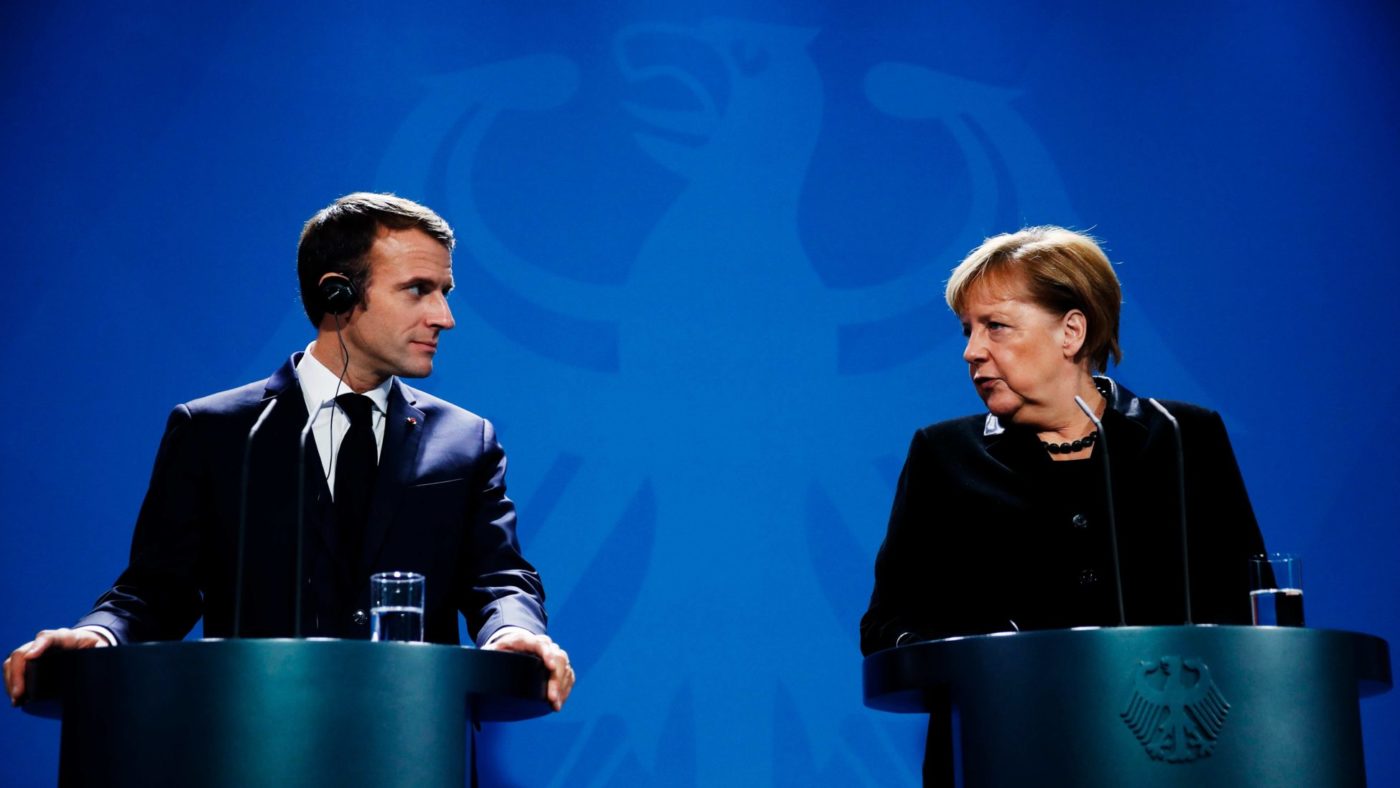European defence is approaching something of a paradox – high on ambition, low on capability.
As the recent antagonisms in the Persian Gulf give way to a renewed flurry of diplomacy, all eyes are on the French resort town of Biarritz where G7 leaders have their annual summit this weekend.
Discussions on defence and security will likely centre on the Western response to the Iranian aggression in the Strait of Hormuz.
After the illegal seizure of the Stena Impero from Omani waters by Iran last month, Boris Johnson has rightly aligned Royal Navy assets with the US to conduct patrols across the Persian Gulf. This will allow a much greater level of protection for the vessels bearing the Union Jack which pass through the strait on a daily basis.
It is not just British interests which have been adversely affected; German shipping companies have also been attacked in these waters. As the world’s third largest exporter, Germany is especially reliant on free passage for its commercial shipping.
So what bearing will this have on the G7 Summit, and how might it affect European defence policy? French President Emmanuel Macron will probably use the summit to lobby for a new European-led maritime taskforce, likely a European Union observer mission in the Gulf.
First proposed during the final days of Jeremy Hunt’s tenure at the Foreign Office, a European-led force would, according to German foreign minister Heiko Maas, likely take some time to organise – a fact that underlines how slowly the EU moves when it comes to defence.
Nevertheless, France and Germany seem determined to organise their own mission and have so far refused to support the US-UK initiative. Indeed, the French foreign minister Jean-Yves Le Drian, has already said a European mission would be “the opposite of the American initiative”.
This unwillingness on behalf of continental Europe’s two big powers seems especially odd given that the US and the UK have already established naval infrastructure in the region; the 5th Fleet and the Royal Navy both maintain basing rights at Bahrain, themselves contributing naval assets, whilst HMS Duncan and HMS Montrose, soon to be joined by HMS Kent, are already conducting freedom of passage patrols for British-flagged tankers. Under US Task Force 55, two destroyers are readily available, in addition to the USS Abraham’s 68 aircraft; their advanced surveillance and reconnaissance systems are crucial to dealing with hostile action at sea.
That France and Germany have chosen to steer clear of the US-UK mission, apparently for fear of supporting Trump’s ‘maximum pressure’ stance towards Tehran, is as parochial as it is predictable. What’s more, this kind of division between Western powers can only benefit the tyrannical Iranian regime.
With the UK’s withdrawal from the EU only weeks away, the balance of power within Europe is shifting. For some in Europe, Brexit is a chance to solidify Paris and Berlin as the centres of European power. Macron particularly sees this realignment as a chance for Europe to assert its ‘strategic autonomy’ from the US.
For that to be in any way meaningful, the EU would need to significantly enhance its defence infrastructure. What was once seen as a trading bloc now aspires to be a serious security actor. Increased European military integration is seen by the likes of Macron and Angela Merkel as a key plank of a distinctly European foreign policy, independent of the US.
We can see as much from both leaders’ support for initiatives such as the European Defence Agency (EDA), the European Intervention Initiative (E2I), and the contentious Galileo satellite system; a system not compatible with American systems. Brussels is also determined to block British access to Galileo despite the UK footing nearly 15% of the bill.
But for all their apparent ambition, neither France nor Germany have the military ability to lead the kind of mission Macron would like to see in the Persian Gulf.
Despite being easily Europe’s largest economy, Germany continues to undershoot its Nato target of spending 2% of GDP on defence. This year spending equates to 1.35% of GDP, a shortfall of some 23 billion euros.
That has real consequences for Germany’s defence capability – only four of the air force’s 128 Eurofighters were operational during 2018; all six of the navy’s submarines were out of commission and there have even been reports of the German army using broomsticks on training exercises for want of more rifles. This deterioration has taken place on the watch of German Defence Minister Ursula von der Leyen. The reward for her distinctly underwhelming performance has been a new job as President of the European Commission, where she will have a pivotal role in EU defence policy.
Meanwhile France has its own defence gaps to worry about. Its ongoing mission in the Sahel is supported by three RAF Chinook helicopters providing a strategic airlift capability to the French forces – crucial in maritime as well as land operations. The French air force is in general is in a pitiful state. Going into 2018, some key air frames providing essential capability were in a remarkably low state of serviceability; 22% of C-130 transport planes, 25% of the Tiger attack and reconnaissance helicopters, and 26% of the Lynx helicopters.
The woeful state of Germany’s military, combined with France’s various shortcomings suggests neither country is in a strong position to spearhead any new defence initiatives, be it in the Gulf or anywhere else.
Certainly, the intent is there, if only to serve as a counter to US and UK policy, but the military capability is still some way off. It would make a lot more sense for France and Germany to reconsider their position and contribute whatever sea-worthy assets they possess to an international task force. That would be a sensible move for their own national interests, as well as those of the rest of Europe.
CapX depends on the generosity of its readers. If you value what we do, please consider making a donation.


